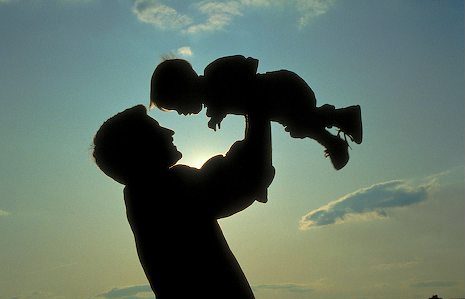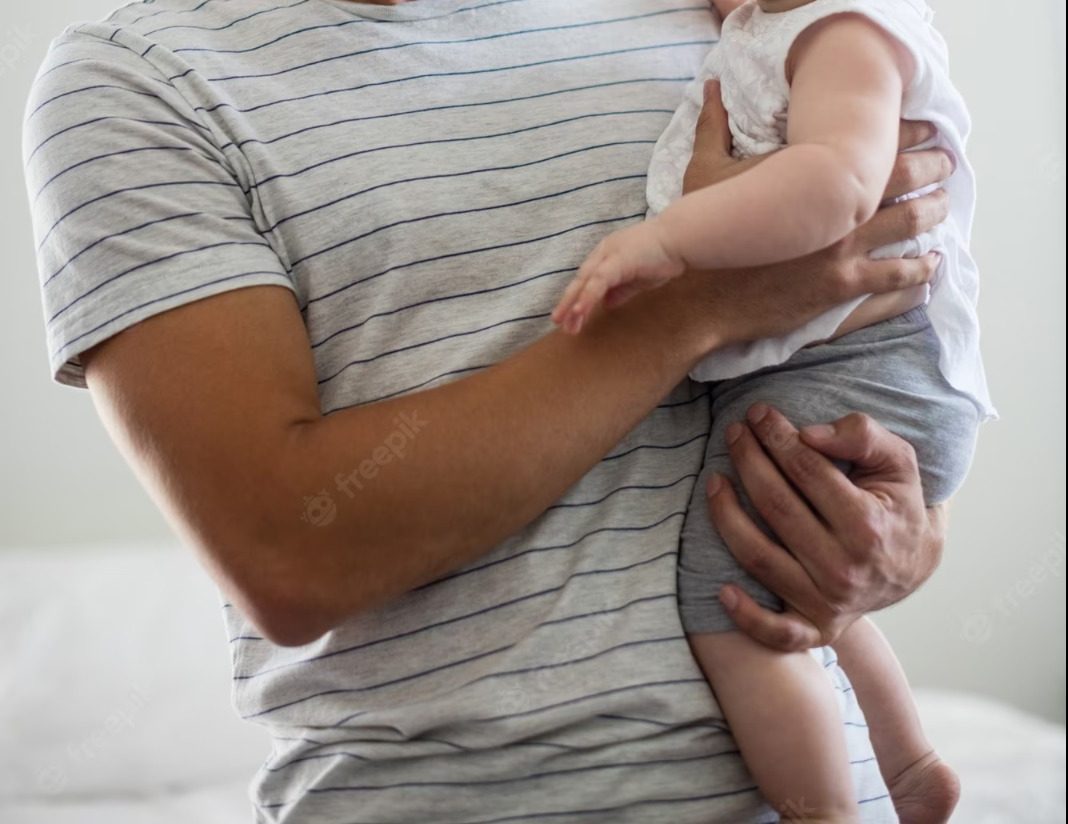Beyond Superman: M’sian Fathers Open Up About The Intersection Of Mental Health & Parenting
 Thirsty for JUICE content? Quench your cravings on our Instagram, TikTok and WhatsApp
Thirsty for JUICE content? Quench your cravings on our Instagram, TikTok and WhatsApp

Fatherhood is frequently associated with fortitude, tenacity, and unfailing support – a role that is customarily portrayed like that of a superhero. Fathers nonetheless possess a distinctive array of challenges to tackle, such as navigating the complex overlap between parenting and mental health.
As we celebrate Father’s Day and Men’s Health Month, it is crucial to shed light on the emotional well-being of fathers, their vulnerabilities, and their journeys towards understanding the significance of mental health in the context of raising children.
In this article, we delve into the lives of five Malaysian fathers who bravely share their experiences, revealing a side seldom explored – the intricate intersection of fatherhood and mental health. Stripping away the armour, they invite us into their world, baring their souls and offering profound insights that challenge societal norms and expectations.
Disclaimer: This piece features topics that may be triggering to certain audiences, including the mention of stillbirth, addiction and self harm. Reader discretion is advised.
“It was a pain we never saw coming”

For one father, who goes by Sanjay, the pain he carries stems from a devastating miscarriage that shattered their world unexpectedly. The loss occurred in the third trimester, transforming what should have been a joyous anticipation into a stillbirth – a blow that was not foreseen. With their firstborn, now 15 years old, by their side, he grapples with a profound sense of regret. He feels that he unintentionally denied his wife the space to grieve and heal, unknowingly creating distance between them in the process.
“The loss blindsided us. It was a stillbirth in the third trimester, a wound that cut deep into our hearts,” he says.
As he reflects upon his actions, he wonders if this shared sorrow has affected their child’s well-being, leading to potential attachment issues.
In his quest for personal healing, Sanjay admits to moments of unintentional neglect towards their existing child, caught in a whirlwind of pain and the struggle to find his own solace. In this fragility, he acknowledges the possibility of coming across as ungrateful, failing to fully appreciate the blessings that still grace their lives – including the presence of their teenage son.
Watching movies where couples are expecting a child also became a source of pain, triggering waves of anguish that remind him of the loss he and his wife endured. Sanjay refers to these scenes as poignant reminders of “the empty cradle”.
He is aware that the emotional gulf that has arisen within his family must be bridged, and he is committed to doing so. Today, Sanjay seeks comfort in time, knowing that it is the passage to gradual healing.
He makes an effort to be more present, actively expressing his tremendous gratitude for their already-born child, using resilience as his compass. He works to mend what was torn, hoping to create a stronger link that results from the lessons gleaned from hardship.
“Sobriety has taught me the value of resilience, and love”

When his daughter was born, Andrew made a courageous decision to relinquish his drinking habits, recognising the importance of being present and providing a stable foundation for his family. However, as his daughter has grown to the age of 11, the echoes of his past still reverberate within him.
Now aged 46, Andrew developed his drinking habits at the mere age of 20, when he would go through at least two cans of beer nearly every night while watching his favourite shows or firmly planted on his gaming chair.
Andrew confesses that, despite his commitment to sobriety, he faces ongoing struggles with his impulses, particularly during challenging times at work. The pressures of life, coupled with moments of stress and frustration, awaken dormant cravings that threaten his resolve. He has relapsed three times since first attempting to break the habit.
In the depths of Andrew’s battle against alcohol addiction, the unwavering support of his wife has played a vital role. As he reflects on his ongoing struggle, he opens up about the measures his wife has taken to aid his journey, acknowledging the burden it places on her.
Cognisant of the significance of a conducive environment, Andrew’s wife has made a conscious effort not to store alcohol in their home. While this act of love and understanding brings him comfort, Andrew carries a sense of guilt, knowing that she goes to such lengths just to support his sobriety.
Andrew acknowledges the importance of finding healthier coping mechanisms, seeking support from loved ones, and engaging in self-reflection to overcome his impulses. He has learned to channel his energy into alternative outlets such as exercise, mindfulness, and creative pursuits, discovering that they provide solace and serve as a testament to his determination.
He remains steadfast in his commitment to sobriety, fuelled by the unwavering love and desire to be the best father he can be. Andrew’s journey is a testament to the resilience and courage it takes to confront one’s inner demons and the ongoing commitment required to navigate the complexities of fatherhood.
Andrew also strives to lead by example and provide his daughter with a safe home as she continues to grow.
“I don’t want my daughter to see me as some flawless, untouchable figure. I want her to know that I have my struggles, my imperfections, just like anyone else. When she looks at me, I want her to see a man who has faced his demons and is willing to fight through them in the name of love,” he asserts.
“At the end of the day, we’re only human”

Joshua, a young father, reflects on his journey and the challenges he has faced. Becoming a father at the age of 20 was both a happy and scary experience for him. While he felt joyous about the impending arrival of his child, he also harboured fears. However, his biggest concern was the health of his baby. When they went for a scan, he anxiously awaited the news. The doctor reassured him, pointing out that their child’s heart was beating fine and everything appeared to be good. This eased Joshua’s worries and brought him a sense of calm.
In the early years of fatherhood, Joshua found solace and purpose in his daughter. She became his motivation to wake up every day, work hard, and provide for her. However, as time went on, he and her mother encountered difficulties, leading to their separation. This turn of events triggered Joshua’s depression and anxiety, as he fretted about his daughter’s future. He worried about the questions she might face, such as why she had two dads and two moms, who she would stay with each week, and why her parents had split. These concerns weighed heavily on him and sometimes drove him to dark places.
Despite the struggles, Joshua draws strength from his family. They have been a source of support and have helped him navigate his challenges. With their assistance, he is slowly overcoming his depression and anxiety. He is actively engaging with others, going out more, and talking to people, recognising the importance of not allowing his mental health to be undermined. Joshua has witnessed the devastating impact of depression firsthand when his own father, who seemed outwardly content, tragically took his own life. He emphasises that turning to substances like alcohol is never a solution.
Joshua understands that it can be difficult to open up and discuss these issues with others, fearing that they may not want to listen or judge him for seeking help. However, he firmly believes that seeking assistance is crucial and that taking one’s own life only compounds the problems for loved ones left behind. He encourages others to reach out and seek support, reminding them that it is okay for men to express their emotions and cry. Joshua shares his own struggles as a message of solidarity and encouragement, particularly to single fathers or those about to embark on the journey of fatherhood. He urges them not to be afraid to ask for help because, at the end of the day, everyone is human, imperfect, and in need of support, regardless of their circumstances.
“I wish they didn’t have to witness this side of love”

In the quiet corners of his heart, Aman carries the weight of a rocky marriage, and the profound impact it has on his beloved children. While he hesitates to disclose the specifics that led to their marital struggles, he acknowledges that both he and his wife share equal faults and responsibilities in their current predicament. What weighs heavily on his conscience is the fear that their children, a son and a daughter, may inadvertently be caught in the crossfire, their perception of love tarnished by the dysfunction they witness.
Aman reflects on the quandary he faces – whether a definitive separation, marking a clear distinction between him and his wife, would be the answer or if this path would only further bewilder and abandon their children. As parents, they strive to shield their young ones from the underlying issues, but the children are old enough to sense the palpable tension that looms over their household.
Aman wrestles with the dilemma of finding a delicate balance between protecting his children from the turbulence and allowing them to grow up with a healthy understanding of love and relationships. Initially, he attempted to grant them more freedom, encouraging outings and time spent away from home when the atmosphere turned tumultuous. However, he soon realised that this was not a sustainable solution in the long run.
In an earnest effort to maintain stability and create moments of respite amidst the chaos, Aman has embraced a different approach. He diligently orchestrates family outings, engaging in fun activities and organising movie nights to keep his children happily occupied. His wife joins in these endeavours, showcasing their unity in nurturing a sense of normalcy and togetherness.
For now, Aman’s deepest hope rests in his children’s understanding that they are cherished beyond measure.
“While I do fear that the foundation of our household may eventually crumble under this pressure, I just hope my kids know they have parents who love them deeply, even if they no longer love each other.”
In the midst of this uncertainty, Aman continually reaffirms to himself that being a loving and present father is the most meaningful gift he can offer his children. He recognises that they are growing, maturing souls who may gradually comprehend the complexities of their parents’ relationship.
“I don’t have a favourite child, only a more vulnerable one”

“I want to say, very directly and openly, that my relationship with my son has depressed me so much that I have toyed with the idea of self harm.”
These candid sentiments belong to a single father named Vinod, who is currently raising two teenage boys. Vinod’s younger child, who requires additional attention due to his autism, has been the focal point of his efforts. Determined to secure the right diagnosis and create a nurturing educational environment, Vinod has devoted countless hours and resources to ensure his younger child’s well-being. However, financial constraints have resulted in limitations for his other son’s learning opportunities, leaving Vinod with a profound sense of guilt.
During his eldest son’s primary school years, as important exams loomed, Vinod faced the painful reality that he couldn’t afford to send him for tuition classes. With the financial strain of supporting his child’s specialised education and the need to hire additional help at home while juggling his professional responsibilities, Vinod’s heart aches knowing that his firstborn may bear the brunt of these sacrifices.
Previously, Vinod shared a special bond with his firstborn, but the strains of their circumstances have strained their relationship. In intimate conversations aimed at addressing the pain, Vinod witnessed his son’s anguish spill over into tears. Though the resentment remains unspoken, Vinod carries the weight of the fractured connection and yearns for reconciliation.
Speaking with JUICE, Vinod struggled to muster the strength to share the pivotal moment when thoughts of self-harm consumed his troubled mind. In a desperate state, he came close to deliberately crashing his car into a tree, a momentary lapse of reason born out of overwhelming despair. It is the thought of accepting his fate, the unwavering love he holds for his sons, and the flickering hope that his relationship with his firstborn may one day be mended that keeps him tethered to life.
Though the road ahead may be arduous, Vinod is committed to finding a path of healing and renewal. He cherishes the belief that, in time, his tireless efforts, open communication, and unconditional love will allow him to forge a deeper connection with his sons.
In his darkest hours, Vinod finds solace in acknowledging that he is doing his best. He strives to embrace his role as a father with unwavering dedication, navigating the uncertainties of his autistic child’s future, the weight of a failed marriage, and the desperate longing to rebuild the bridge between himself and his firstborn.

This article not only amplifies the voices of these remarkable fathers but also serves as a call to action. It urges society to acknowledge the vital importance of mental health in the context of fatherhood and to dismantle the stereotypes that hinder open conversations around men’s emotional well-being. By challenging preconceived notions and encouraging empathy, we can create a supportive environment that fosters healthier, happier, and more engaged fathers.
May we foster a climate in this ongoing conversation about fatherhood and mental health that supports all fathers as they work to be present, compassionate, and emotionally stable carers for the next generation. Let’s acknowledge that beneath the heroic persona is a man who, like everyone else, deserves to be treated with respect, empathy, and autonomy in order to chart his own mental wellness journey.
Happy Father’s Day to all the extraordinary fathers out there, both seen and unseen, who have impacted our lives with their unflinching love and commitment. May we continue to develop as a community while recognising and elevating the crucial role that fathers play in nurturing their children, and personal well-being.
Feature image courtesy of Novastock


 Get Audio+
Get Audio+ Hot FM
Hot FM Kool 101
Kool 101 Eight FM
Eight FM Fly FM
Fly FM Molek FM
Molek FM

